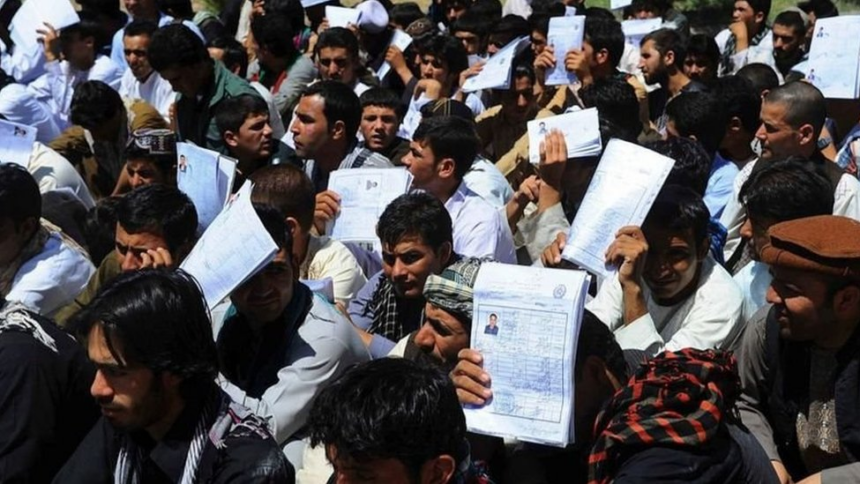RASC News Agency: The Taliban’s Passport Directorate has formally announced that it will no longer issue passports to orphans, individuals blacklisted from leaving the country, or those convicted under the group’s so-called judicial system. In a statement released on Saturday, Aug 23, in Kabul, the department declared that children without a legally recognized guardian would be barred from obtaining passports. It further stipulated that individuals flagged in the Taliban’s biometric databases as “restricted from travel” would automatically lose their right to a passport. This decree, yet another layer of exclusionary control, comes at a time when complaints against the Taliban’s passport offices in Kabul and the provinces are mounting. Applicants repeatedly report that acquiring a passport through the so-called official channels has become nearly impossible. Instead, the process has been transformed into a lucrative enterprise for Taliban commanders, warlords, and those within their patronage networks.
According to sources familiar with the inner workings of the system, the Taliban have institutionalized a network of middlemen and corrupt passport officials who openly trade in desperation. Applicants are first forced to pay substantial sums to commission agents. These brokers take a cut of around ten percent before funneling the remainder to Taliban officials inside the passport offices. Only then is an applicant given a biometric appointment date, followed days later by the issuance of a passport if payment is complete. Multiple sources confirm that Taliban passport officers routinely demand bribes ranging from 400 to 1,000 U.S. dollars per document, with the entire system functioning as a mafia-style extortion scheme. Meanwhile, Afghanistani migrants deported from Iran have voiced fresh grievances, stating that their passports were torn apart by Iranian police. Yet when they returned home seeking replacement documents, Taliban authorities flatly refused to issue them new passports leaving many stranded without identity papers, effectively trapped under a dual burden of foreign hostility and Taliban repression.
Ironically, the Taliban boast of having distributed “hundreds of thousands of passports and electronic ID cards” over the past four years. Officials at the group’s identity and passport offices claim that distribution continues at full scale, with thousands visiting processing centers in Kabul and other cities daily. Yet behind this facade of bureaucratic efficiency lies a system riddled with extortion, discrimination, and deliberate restrictions. For ordinary Afghanistani citizens, these documents are not luxuries but lifelines essential tools to flee an economy collapsing under Taliban misrule, escape suffocating restrictions, and seek survival abroad. Analysts stress that the overwhelming demand for passports and ID cards reflects not opportunity but desperation: the quest to break free from poverty, mass unemployment, and the crushing weight of Taliban authoritarianism. Experts argue that by imposing arbitrary restrictions on who may or may not obtain passports, while simultaneously monetizing the process through corruption, the Taliban have turned identity documents into both an instrument of political control and a profitable revenue stream for their patronage networks.
In effect, what should be a fundamental right for citizens has been weaponized into a mechanism of exclusion and financial exploitation. For Afghanistan’s citizens, every passport issued is not merely a travel document it is a ticket of escape from a country suffocated under the Taliban’s tightening grip.






